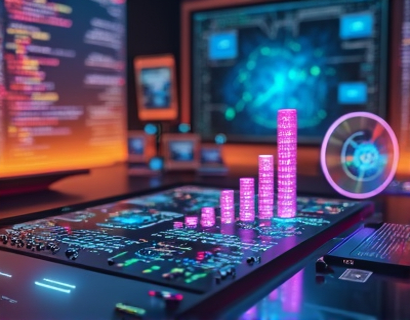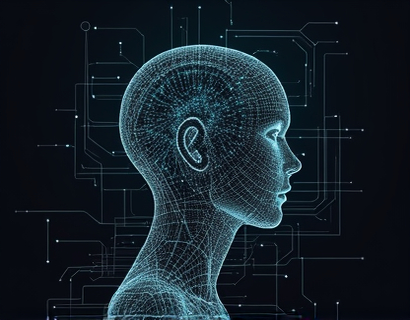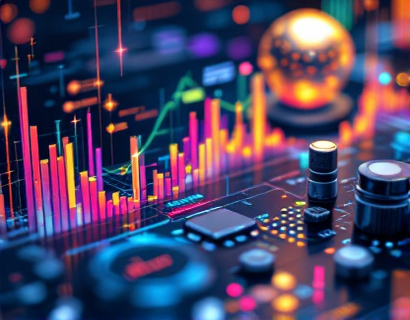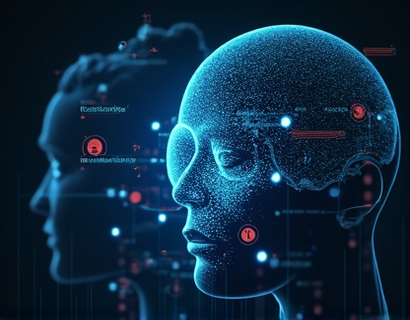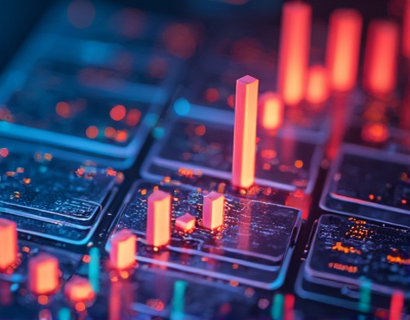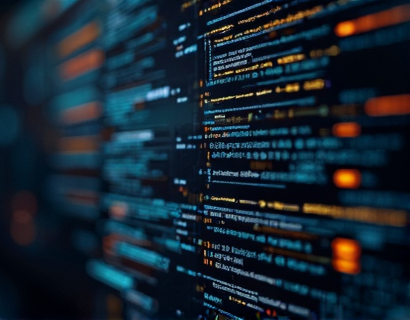AI and Crypto Convergence: Unleashing the Future of Intelligent Blockchain Finance Innovations
The intersection of artificial intelligence (AI) and cryptocurrency is a rapidly evolving domain that promises to revolutionize the finance and technology sectors. This convergence, often referred to as Intelligent Blockchain Finance, is driven by the synergistic potential of AI's computational prowess and blockchain's decentralized, secure, and transparent ledger technology. As we delve into this topic, it's essential to understand the foundational elements that are shaping this dynamic synergy.
The foundation of this convergence lies in the unique capabilities of both AI and blockchain. AI, with its advanced algorithms and machine learning techniques, excels in processing vast amounts of data, identifying patterns, and making predictions with high accuracy. Blockchain, on the other hand, provides a secure and immutable record of transactions, ensuring trust and transparency in a decentralized network. When combined, these technologies can create financial systems that are not only more efficient but also more secure and accessible.
One of the primary areas where AI and blockchain converge is in the enhancement of smart contracts. Smart contracts are self-executing contracts with the terms of the agreement directly written into code. AI can optimize these contracts by analyzing vast datasets to identify potential risks, automate complex logic, and ensure compliance with regulatory requirements. For instance, AI-driven tools can dynamically adjust the terms of a smart contract based on real-time market conditions, thereby reducing the need for intermediaries and lowering transaction costs.
Another significant application of AI in blockchain finance is in the realm of fraud detection and prevention. Traditional financial systems often struggle with detecting and preventing fraud due to the sheer volume of transactions and the complexity of fraudulent schemes. AI algorithms, particularly those based on machine learning, can analyze transaction patterns and identify anomalies that may indicate fraudulent activity. By integrating AI with blockchain, financial institutions can achieve real-time monitoring and immediate alerts, significantly enhancing their security measures.
The use of AI in cryptocurrency trading is also transforming the landscape. AI-powered trading bots can analyze market data, news feeds, and social media sentiment to make informed trading decisions. These bots can execute trades at optimal times, manage risk, and adapt to changing market conditions much faster than human traders. This not only increases the efficiency of trading but also opens up opportunities for retail investors who may not have the expertise or resources to trade manually.
Beyond these applications, AI is playing a crucial role in the development of decentralized finance (DeFi) platforms. DeFi aims to create financial services that are open, permissionless, and accessible to everyone. AI can enhance DeFi by providing personalized financial advice, optimizing portfolio management, and predicting market trends. For example, AI-driven recommendation systems can suggest the best DeFi protocols for users based on their risk tolerance and investment goals, thereby democratizing access to sophisticated financial tools.
The integration of AI and blockchain also addresses some of the inherent challenges of traditional financial systems. One such challenge is the lack of transparency and trust in financial transactions. Blockchain's immutable ledger ensures that all transactions are recorded and verifiable, while AI can further enhance this by providing auditable and transparent decision-making processes. This combination can build greater trust among users and stakeholders, fostering wider adoption of blockchain-based financial solutions.
Another area of innovation is in the realm of identity verification and Know Your Customer (KYC) processes. Traditional KYC procedures are often cumbersome and privacy-invasive, requiring users to provide extensive personal information. AI and blockchain can streamline this process by creating decentralized identity systems where users control their own identity data. AI algorithms can verify identities through biometric data or other secure methods, reducing the need for manual verification and enhancing user privacy.
The convergence of AI and blockchain is not without its challenges, however. One of the primary concerns is the scalability of blockchain networks. Current blockchain technologies often struggle to handle the high transaction volumes required for widespread financial applications. AI can help mitigate this issue by optimizing blockchain protocols, improving consensus mechanisms, and developing layer 2 solutions that enhance scalability without compromising security.
Another challenge is the regulatory landscape. As AI and blockchain technologies evolve, regulators are grappling with how to oversee these innovations while ensuring consumer protection and financial stability. AI can assist in regulatory compliance by automating the monitoring of transactions and ensuring adherence to legal requirements. However, this also requires close collaboration between tech developers, financial institutions, and regulatory bodies to create frameworks that support innovation while maintaining oversight.
To fully harness the potential of AI and blockchain convergence, it is essential to build a vibrant community of tech enthusiasts and professionals. This community can serve as a platform for knowledge sharing, collaboration, and innovation. Online forums, hackathons, and conferences play a crucial role in bringing together experts from various fields to discuss the latest developments and explore new applications. By fostering a collaborative environment, the community can accelerate the development of cutting-edge solutions and drive the adoption of intelligent blockchain finance.
For those interested in delving deeper into this topic, there are numerous resources available. Academic papers, research articles, and technical blogs provide insights into the theoretical foundations and practical implementations of AI and blockchain. Online courses and tutorials can help individuals gain hands-on experience with the tools and technologies involved. Additionally, open-source projects and GitHub repositories offer a wealth of code and documentation that can serve as starting points for developers and researchers.
In conclusion, the convergence of AI and blockchain is poised to transform the finance and technology sectors in profound ways. By leveraging the strengths of both technologies, we can create more efficient, secure, and accessible financial systems. As this field continues to evolve, the importance of community engagement, continuous learning, and regulatory cooperation cannot be overstated. The future of intelligent blockchain finance is bright, and those who embrace this convergence will be at the forefront of a new era in financial innovation.



